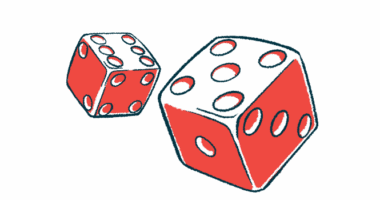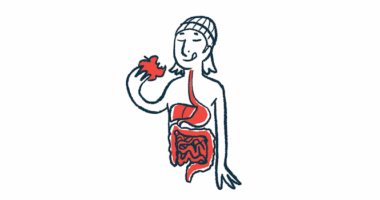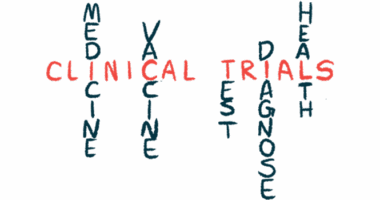How to talk to your child about Gaucher disease
Last updated July 8, 2025, by Susie Strachan
When talking to your child about Gaucher disease, a good place to start is getting a sense of what they already know.
Children often notice when something isn’t the same as everyone else — having regular doctor visits, feeling tired, or missing out on activities and social events — and these moments can help spark a conversation.
But you don’t want to explain everything about Gaucher disease all at once. Think of these as ongoing conversations throughout their childhood that will grow in scope as they get older.
What shouldn’t change is your approach. By always staying calm and open, you can help your child feel safe and supported.
Explaining Gaucher to your child at every age
Children make sense of the world differently at each age, so choosing words they can easily understand can help them feel more in control.
What they ask is a good clue to what they’re ready to hear. Listen to their questions as a guide to what to tell them and which details to share.
While simple explanations are good for younger children, older kids may be able to handle more specific information. They might ask pointed questions, such as what Gaucher medicine does or how Gaucher affects their body.
Continually remind your child that they can always come to you when they’re worried, confused, or not feeling well. Sometimes kids, especially as they get older, may try to hide symptoms to avoid feeling different or to be more independent.
Here are some suggestions for how to approach the conversation based on your child’s age.
Young kids
When explaining Gaucher disease to younger kids, around ages 4 to 7, keep explanations simple with brief supporting information.
You might say: “You have something called Gaucher, which means some parts inside your body don’t work exactly as they should. This is why your tummy feels funny sometimes or you get tired more often.”
Incorporating stories, stuffed animals, and drawings can be a way to show them what is going on in their body to help them understand it better.
School-age kids
Kids ages 6 to 11 may be able to handle more information. For example, you might explain it by saying:
“Gaucher disease affects how some parts of your body work, which can lead to symptoms like fatigue or bone pain,” or, “The medicine you take can help your body manage these changes and help you to feel better.”
Discuss the purpose of doctor visits and treatments. Answer their questions, and, if you don’t know something, say you will find out more or you can look into it together, depending on what is most appropriate.
Preteens
As kids get older, they usually become more aware of how Gaucher affects their daily life and how they might be different from their peers.
Whenever you are explaining some aspect of Gaucher disease to them, remind them that they are not their disease — and that you are always there for them.
Help them focus on their strengths and unique talents, and to try not to compare themselves with others.
Teenagers
Teens often want more control and clear information. They might ask how Gaucher affects school, sports, relationships, or their future. They may be angry or sad at times and take it out on you.
Let them know it’s OK to feel frustrated and that you understand and want to support their growing independence.
Talk about how you can work together to help them start to manage their health more on their own, such as their doctor appointments.
Talking about Gaucher treatment
When explaining treatment, keep it simple and reassuring.
You might say, “The medicine helps your body stay strong.”
Help a younger child feel more at ease during medical care by recognizing their emotions, offering comfort items like books or stuffed animals, and praising their effort — like holding still or speaking up — instead of focusing only on bravery.
As your child gets older and seems ready to handle more, begin to include them in treatment decisions.
If your child is anxious about some part of their care, such as infusions, taking pills, or certain procedures, do your best to reassure them throughout the process.
A child therapist can help them manage fears and feel more comfortable with their treatment routine. A social worker can also provide emotional support, and connect you with resources like counseling and support groups.
Finding support
Gaucher Disease News columnist Marion Glaser shares her experiences and advice for raising a child with Gaucher.
Organizations such the National Gaucher Foundation and the Gaucher Community Alliance also offer ways to connect with parent members of the Gaucher community.
You may not always have all the answers, but with your support, you can help your child feel more at ease — and grow more confident in talking about Gaucher together.
Gaucher Disease News is strictly a news and information website about the disease. It does not provide medical advice, diagnosis, or treatment. This content is not intended to be a substitute for professional medical advice, diagnosis, or treatment. Always seek the advice of your physician or other qualified health provider with any questions you may have regarding a medical condition. Never disregard professional medical advice or delay in seeking it because of something you have read on this website.
Recent Posts
- Strength training with Pilates while living with Gaucher disease
- Anti-inflammatory drugs treat lung issues in baby with Gaucher disease
- Why do some Gaucher patients face Parkinson’s disease risk?
- Breastfeeding has been a beautiful challenge for me as a new mother
- Boy with Gaucher disease develops complication despite ERT treatment




